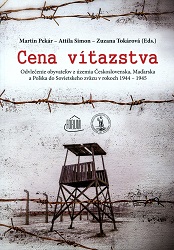Odvlečenie občanov Poľska do Sovietskeho zväzu v rokoch 1944-1945
The Deportation of Polish citizens to the Soviet Union in 1944-1945
Author(s): Mateusz Gniazdowski, Dariusz Rogut
Subject(s): WW II and following years (1940 - 1949)
Published by: Fórum Kisebbségkutató Intézet
Keywords: Poland;Soviet Union;deportations;Armia Krajowa;
Summary/Abstract: It is no accident that Sándor Márai's words are often quoted in Poland, according to which the Soviet soldier brought us liberation from the German occupation but he could not bring freedom because he was not free himself. The violent establishment of the communist regime in Poland began faster than in Hungary or Czechoslovakia. In 1944 the Polish government in exile and Polish resistance which was subordinate to it approached the Soviet Union as an "ally of our allies". In connection with the military defeats of the Wehrmacht, the Polish resistance started operation "Burza" (storm). It was an armed struggle against the Germans with the aim of liberating Polish territories before the arrival of the Soviets, possibly in cooperation with them. But the Soviets began to disarm Polish partisan troops and they were often sent to camps in the Soviet Union. Until the autumn of 1946, Polish communists were not able to effectively fight against the "internal enemy"and the Soviet 64th NKVD division remained in Poland until spring 1947. The numbers of Poles in Soviet camps gradually reached the thousands - more than 30,000 were interned, more than 10,000 were locked in filtration camps, and more than thousand were convicted in Soviet forced-labour camps. Several categories of persecuted persons can be identified - the "interned" soldiers of the Polish resistance, the "disloyal" civilians of the eastern territories of Poland, those accused of crimes against the Soviet rule, those press-ganged into the Red Army. There were also Polish citizens whom the Soviet authorities treated as Germans and sent them to forced-labour camps. Approximately 80-95,000 Poles were deported from January 1944 to the end of the decade, but these estimates do not include Polish citizens of other nationalities, as well as the difficult to identify number of Poles who were deported as Germans. The Soviet authorities on the territory of Poland often behaved as if they were hostile occupied territories, and for many Poles - especially for those persecuted and deported - it was a further period of occupation.
- Page Range: 113-122
- Page Count: 10
- Publication Year: 2017
- Language: Slovak
- Content File-PDF

